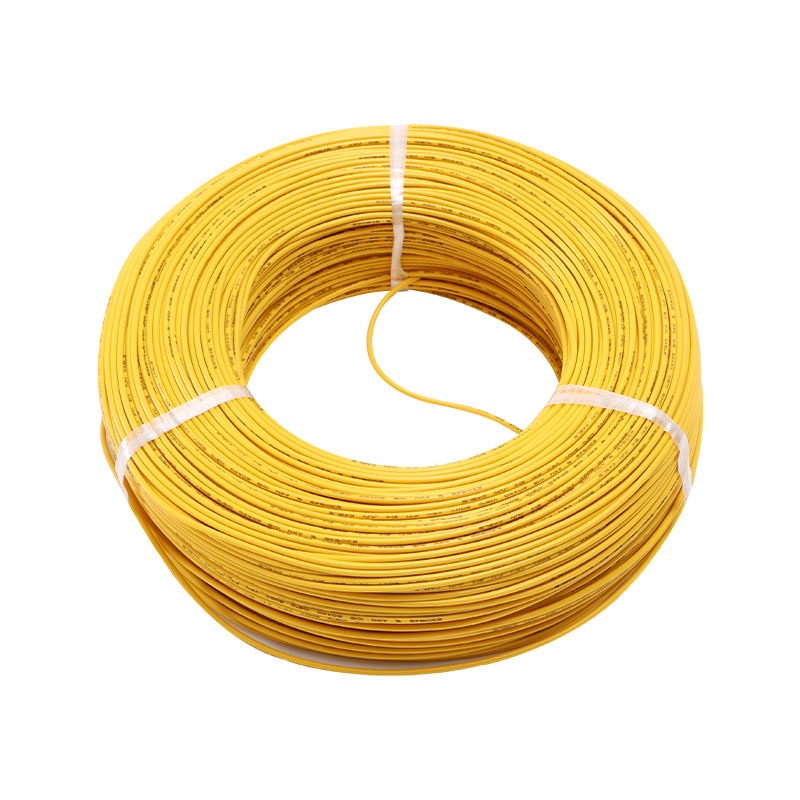In today’s demanding industrial and electronic environments, wiring systems must withstand extreme conditions while maintaining performance and safety. PTFE insulated wires, made with polytetrafluoroethylene (commonly known as Teflon), have become a preferred solution for high-temperature applications. PTFE offers unique properties that enable wires to function reliably where conventional insulation materials like PVC or rubber would fail. Understanding the key advantages of PTFE insulated wires is essential for engineers, technicians, and facility managers seeking durable and high-performance wiring solutions.
What Are PTFE Insulated Wires?
PTFE insulated wires consist of a conductive core—usually copper or tinned copper—covered with a layer of PTFE insulation. This synthetic fluoropolymer is renowned for its:
- High thermal resistance – able to operate in extreme temperatures without degrading.
- Chemical resistance – impervious to many solvents, acids, and alkalis.
- Low friction and non-stick properties – reduces the risk of mechanical wear.
- Electrical insulation stability – maintains performance over a wide range of voltages and frequencies.
These characteristics make PTFE insulated wires ideal for applications in aerospace, automotive, electronics, chemical processing, and industrial equipment.
High-Temperature Performance
One of the most significant advantages of PTFE insulated wires is their ability to operate reliably at high temperatures. Standard insulation materials, such as PVC or rubber, can begin to degrade or lose insulating properties at temperatures above 105°C. PTFE, on the other hand, can typically withstand temperatures from -200°C up to 260°C, with some specialized formulations reaching even higher.
This wide thermal range ensures:
- Consistent electrical performance – PTFE insulation does not soften, melt, or crack under heat, maintaining conductivity and dielectric strength.
- Reduced fire risk – PTFE is inherently flame-resistant and self-extinguishing, making it safer in high-heat environments.
- Longevity – PTFE wires maintain integrity for decades even in continuous high-temperature operation, reducing replacement frequency.
Industries with extreme heat conditions, such as aerospace engines, industrial ovens, or high-power electronics, benefit from the reliability of PTFE insulated wires.

Chemical and Environmental Resistance
In addition to high-temperature performance, PTFE insulated wires excel in resisting chemicals, moisture, and UV exposure.
1. Chemical Resistance
PTFE is highly resistant to:
- Acids and alkalis
- Solvents
- Oils and lubricants
- Corrosive gases
This property makes PTFE insulated wires suitable for chemical plants, laboratories, and automotive applications, where exposure to harsh chemicals could quickly degrade other insulation types.
2. Moisture and UV Resistance
PTFE does not absorb water, preventing insulation failure due to moisture ingress. It also withstands UV radiation, making it suitable for outdoor or exposed applications without cracking, fading, or losing insulating capacity.
Electrical Performance Advantages
PTFE insulated wires are not only robust physically but also provide superior electrical performance in demanding environments.
1. High Dielectric Strength
PTFE insulation maintains a high dielectric strength, ensuring excellent resistance to voltage breakdown. This makes it suitable for applications in high-voltage systems, power electronics, and aerospace instrumentation.
2. Low Dielectric Constant and Dissipation Factor
The low dielectric constant and minimal dissipation factor of PTFE reduce signal loss and interference, making it ideal for high-frequency applications such as radar systems, communication cables, and medical devices.
3. Stable Electrical Properties Across Temperature Range
Unlike other materials that may change resistivity or capacitance with temperature fluctuations, PTFE maintains stable electrical characteristics, ensuring consistent performance even under rapid thermal cycling.
Mechanical and Installation Benefits
Beyond temperature and chemical resistance, PTFE insulated wires offer mechanical advantages that facilitate installation and long-term operation.
1. Flexibility
PTFE insulation remains flexible at both high and low temperatures, allowing easy routing in confined spaces or around complex geometries without cracking.
2. Low Friction
The non-stick nature of PTFE reduces friction during installation, making it easier to pull wires through conduits or panels. This also reduces wear when wires are in motion or subjected to vibration.
3. Abrasion and Impact Resistance
PTFE’s toughness protects the wire core from abrasion, mechanical stress, or occasional impact, increasing overall system reliability.
Industry Applications
The unique combination of high-temperature tolerance, chemical resistance, and electrical performance makes PTFE insulated wires valuable in numerous industries:
- Aerospace and Defense: Wiring in aircraft engines, satellites, and missiles must endure extreme temperatures, vibration, and exposure to fuels or lubricants.
- Automotive: High-performance vehicles and electric vehicles require wiring that withstands heat from engines, batteries, and electronic control units.
- Industrial Equipment: PTFE wires are used in ovens, furnaces, chemical plants, and robotic machinery exposed to heat, chemicals, or UV light.
- Electronics and Telecommunications: PTFE ensures stable signal transmission in high-frequency circuits, medical devices, and communication equipment.
- Renewable Energy: Solar panels and wind turbines benefit from PTFE’s UV resistance, thermal stability, and long-term reliability.
Cost Considerations
While PTFE insulated wires typically have a higher initial cost compared to PVC or rubber wires, the long-term advantages often outweigh upfront expenses:
- Longer lifespan reduces replacement frequency
- Lower maintenance costs due to chemical and thermal resistance
- Improved system reliability prevents downtime and costly failures
- Enhanced safety reduces the risk of fire or electrical hazards
In many high-performance applications, these benefits justify the investment in PTFE insulation.
Conclusion
PTFE insulated wires offer a range of key advantages that make them ideal for high-temperature and demanding industrial applications. Their thermal resistance, chemical and environmental durability, superior electrical properties, and mechanical flexibility ensure reliable operation where conventional insulation materials would fail.
From aerospace and automotive industries to chemical plants and high-frequency electronics, PTFE insulated wires provide:
- Enhanced safety due to flame resistance and anti-degradation properties
- Consistent electrical performance across extreme temperatures
- Long-term durability, reducing maintenance and replacement costs
- Installation flexibility and resistance to mechanical stress
In conclusion, PTFE insulated wires are not just a high-performance alternative—they are often the only viable solution in environments where heat, chemicals, and electrical stability are critical. Selecting PTFE insulated wires can ensure both operational reliability and long-term cost-effectiveness in high-temperature applications.



 English
English عربى
عربى Español
Español









